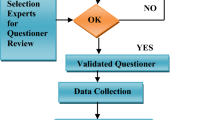Abstract
Electric power supply is the most important commodity for national development in any nation. The Power Holding Company of Nigeria (PHCN) is responsible for generating, transmitting, distributing and selling electric power to the various consumers throughout the country. Although regular power supply is essential to the rapid development of any society, power supply in Nigeria is erratic and unreliable. The paper presents the results of an investigation conducted on some of the operations of the generating department, transmitting department and distributing department of PHCN. The paper also examines the various stages of power generation and some of the factors responsible for power outages. These factors include: overcurrent fault, earth fault, planned outages and load shedding. These problems were found to span the various stages of power generation and they also included generation capacity; insufficient and old equipment, unsuitable transmission structure, long, fragile network with lack of loops as well as high transmission and distribution losses.







Similar content being viewed by others
References
Adenikinju A (2005) The case of the electricity sector in Nigeria. The African Economic Research Consortium Research Paper 148, Nairobi, 12 February, 2005; ISBN 9966-944-59-1
Agbo A (2007) Ending the power nightmare. TELL, Tasmania, pp 28–31
Atser G (2006) Nigeria, others have less than 25 % access electricity. The Punch News Paper, World Bank, Washington, DC, p 28
Babatunde MA, Shuaibu MI (2009) The demand for residential electricity in Nigeria: a bounds testing approach. A paper presented at the conference of the African econometric society, AES, Dakar
Emovon I, Kareem B, Adeyeri MK (2011) Power generation in Nigeria; problems and solution. In: International conference of Nigerian association for energy economics. NAEE, Abuja
Ibe AO, Okedu EK (2009) A critical review of grid operations in Nigeria. Pac J Sci Technol 10(2):486–490
Lee KS, Anas A (1991) Manufacturer’s responses to infrastructure deficiencies in Nigeria: private alternatives and policy options. In: Chibber A, Fischer S (eds) Economic reform in sub-Saharan Africa: a World Bank symposium. World Bank, Washington, DC
Manafa N (1995) Electricity development in Nigeria. Rasheen Publisher, Lagos, pp 37–51
Musa DA (2010) The economics of electric power supply in Nigeria. http://www.gamji.com/article9000/NEWS9075.htm. Accessed 27 Sept 2010
Niger Power Review (1989) Development of the electricity industry in Nigeria 1960–1989. Nigerian Electricity Sector, Delta State, pp 10–15
Niger Power Review (1995) Development of the electricity industry in Nigeria, vol 2. Nigerian Electricity Sector, Delta State, pp 5–8
Nwaoshai J (2006) Healthy power sector will create jobs in the telecom industry. Vanguard, London, p 43
Okafor EE (2006) Development crisis of power supply and implications for industrial sector in Nigeria. Stud Tribes Tribals 6(2):83–92
Okoro OI, Chikuni E (2007) Power sector reforms in Nigeria: opportunities and challenges. J Energy S Afr 18(3):52–57
Osaghae OJ (2009) Potential biomass based electricity generation in a rural community in Nigeria. Unpublished Masters Thesis, Department of Applied Physics and Mechanical Engineering, Lulea University of Technology, Lulea
Oyeyele D (1987) NEPA—a force in social and industrial development in Nigeria. Lecture presented at the Nigerian institutes of international affairs, Victoria Island, Lagos
Sambo AS (1987) Wind energy assisted solar electricity generating schemes for the rural areas of Nigeria. In: Proceedings on large scale systems in developing countries, vol 1. Joja Publishers, Lagos, pp 23–23
Author information
Authors and Affiliations
Corresponding author
Rights and permissions
About this article
Cite this article
Odior, A.O., Oyawale, F.A. A review of some of the operations of power holding company of Nigeria. Int J Syst Assur Eng Manag 3, 160–168 (2012). https://doi.org/10.1007/s13198-012-0104-y
Received:
Revised:
Published:
Issue Date:
DOI: https://doi.org/10.1007/s13198-012-0104-y




